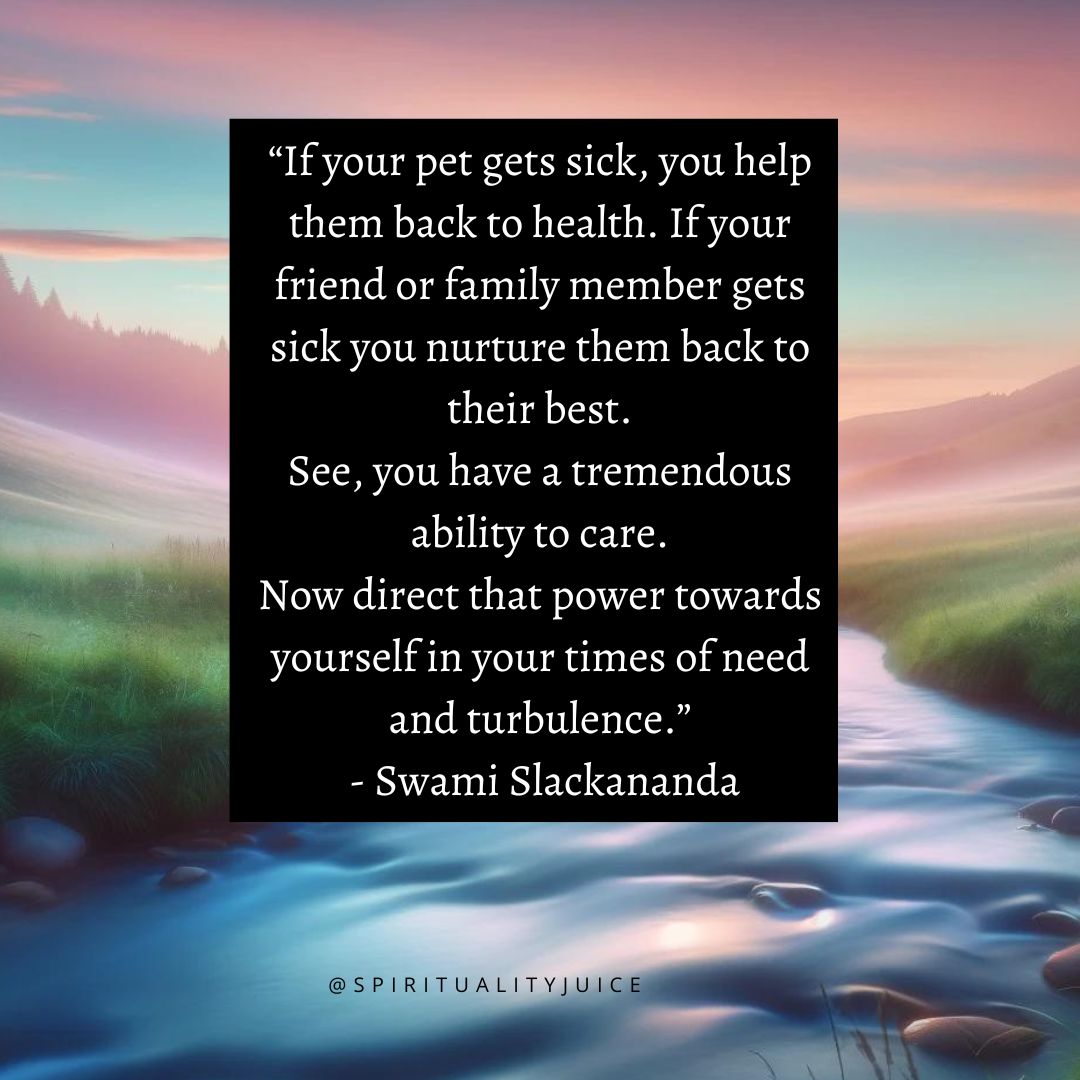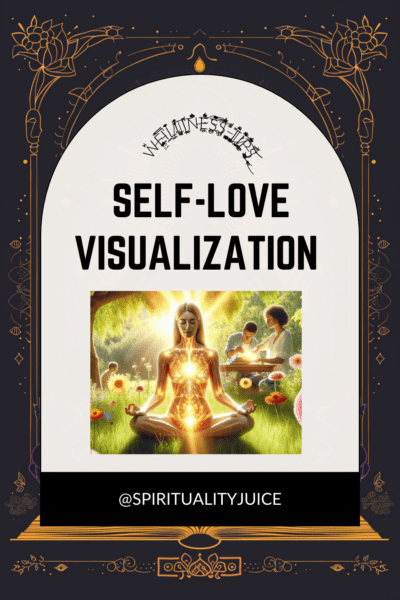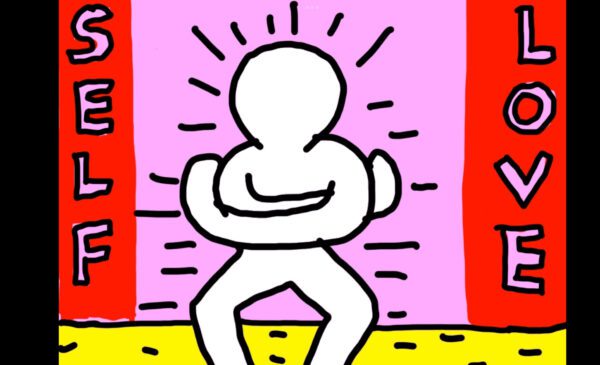Ever stumbled upon a piece of wisdom that stops you dead in your tracks, making you rethink entirely how you treat yourself versus others?
I did…
I recently dove into a fascinating perspective offered by Carl Jung. He shed light on a common yet profound adage:
“Treat your neighbor as you would like to be treated.”
We’re all aware of. But see, Jung flipped the script on us. Instead, he transformed this into a powerful meditation on self-love. Treat yourself with the same level of care you’d extend to someone you deeply care about.
“Treat yourself as you would treat your neighbor”
(or you’r best friend if you hate your neighbor)
Yeah I get it. At first glance, it seems like a simple push towards kindness and reciprocity, right? Yet, Jung’s take is far from a mere “call to be nice” so to speak. Actually, the way I take it; it’s straight up an invitation for some seriously deep introspection. It’s a challenge that got me to redefine my approach to self-love as I am on the path learning to love myself.
You have something valuable to bring into the world
So the online inspirational guru guy Jordan Peterson summed it up like this:
Picture this. You have a favourite cat, ok. Should it fall ill and require medication, it is HIGHLY unlikely that you would ever fail to adhere to the vet’s exact minute instructions to the T! I’m sure you’d ensure your dear dear pet gets the necessary medication exactly when he/she needs it.
Such a level of care and attention appears naturally as you have love and concern for the welfare of your cat.
Yet, when it comes to our own health and well-being, this level of diligence and care more often than not fall by the wayside. Like, for example if we receive medical advice or prescriptions for ourselves, the statistics suggest that people take better care of their pets than themselves.
Let that sink in for a second.
Why is it that we can muster such care for our pets, recognizing their need for help and acting on it, yet when it comes to our own needs, we falter?
This boggles my mind seriously!

It really brings out a very important teaching of self-love. That is, our pets who are totally dependent on us for their lives, derive a great advantage; our ability to care. They flourish under our care.
Should we treat ourselves with the same level of care—acknowledge our needs and address them as promptly and as seriously—the quality of our lives would be improved, as would our ability to care for others, whether they be human or animal.
Learning to love myself by loving my Pet
I don’t have a cat though…I do have a dog. Here is what I learned about learning to love myself by loving my dog:
- Observation and Responsiveness: Just as we observe our cats or dog for signs of discomfort or illness, we should tune into our own needs and symptoms, responding with appropriate care.
- Unconditional Care: We love our cats unconditionally, providing for their needs without hesitation. Applying a similar unconditional care to ourselves means prioritizing our well-being, regardless of the circumstances.
- Routine and Discipline: The routine care we provide for our cats, from feeding to grooming, underscores the importance of regular self-care routines in our own lives, contributing to overall health and stability.
If we respect how we treat our pets and thereby transpose this thought into how we behave with ourselves, we can therefore reduce the gap between the way we behave towards other people and towards ourselves.
A variation is seen in the point of view, but it can be quite substantial when it comes to our health and in general, happiness. Let us take example from our cats and choose to love ourselves in equal measure.
Where do I focus my Energy?
If the golden rule is to treat others as you’d like to be treated, then it begs the question: how do you wish to be treated? Surely, it’s not about having everyone cater to your every whim, laying everything at your feet. That’s hardly the care we would envision for someone we’re responsible for nurturing.
But be pragmatic here…how do you want to be treated?

The Pareto Principle in Personal Growth
In learning to love myself I discovered that a small percentage of causes often leads to a large percentage of effects. This is known as “the Pareto Principle” or “the 80/20 Principle”
Applying the Pareto principle to personal growth and self-improvement involves recognizing that small, focused efforts can lead to significant positive changes in our lives.
This might mean concentrating on the 20% of habits or activities that contribute to 80% of our happiness and well-being. It encourages us to be strategic in our self-improvement endeavors, focusing on what truly matters and can make the biggest difference.
What are the 20% of my activities that lead to 80% of my happiness and fulfillment?
Here are just some, yah know, general ideas of how you can apply it.
1. Zeroing In on What Matters
X-marks-the-spot. Identify key tasks in both your personal and professional endeavors. These are your golden tasks, the ones that push the needle, the ones that matter. For example I chose to spend my time writing this blog post for you instead of playing Ark for 7 hours straight.
2.Crafting a To-Do List with Superpowers
Picture your daily or weekly to-do list through the eyes of a superhero, identifying the activities that will deliver the biggest bang. Spot these, and have them drive your day. When you do this, you are putting impact over activity, and this changes everything in the way you manage your time.
3.Decluttering
Picture the freedom of realizing that only a tiny bit of what you own or do contributes to happiness and pleasure. This type of understanding enables you to concentrate on what is really important and, therefore, create an opportunity for peace and creativity.
4. Learning on the Fast Track
Have you ever been bombarded by the amount of stuff you need to learn? Use of Pareto Principle here will allow one to concentrate on the 20% of concepts or skills that will provide 80% of the value. It is likened to a wide cheat sheet for the exams of life allowing people to learn smarter instead of harder.
5. Business Insights that Hit the Bullseye
use this 80/20 principle to examine the key group that moves your business forward. Such understanding enables the development of focused tactics. These tactics foster and expand crucial links which lead to your business reaching new peaks.
6. Enriching the Relationships That Truly Count
Think back to the people in your life that make you happiest and most fulfilled. These are your 20%, the relationships upon which you should spend your time and energy. Concentrating on these interesting connections, you add value to your life with the details of interacting and bonds.
7. The Fitness Shortcut
In health and fitness, the Pareto Principle is useful in determining the few exercises or dietary modifications that yield the most important outcomes. This is about working out smarter, sticking to what really pushes the needle towards your health goals.
Introducing the Pareto Principle into the web of your life, you open a door into a life of focus and productivity that takes you closer to your achievements. It is more in terms of productivity as against activity. Therefore, jump in, and have this powerful guideline lead you to a more satisfied, productive, and successful life.
Am I Good Enough? The Danger of Comparison
Society, especially a highly competative society, has a tendency to make us feel inadequate.
It makes one wonder that the aspirations which we have or we suppose we have for ourselves are in fact the already innate privileges of the others right from the time of their birth. Something of THAT sort is, if I wanted to have $100 million dollars, I could have just been born into a Rich Family.
From the umbilical cord straight into your dream life. You had no say in it…but news flash, neither did they.
Compare yourself to who you were yesterday, not to who someone else is today.
Navigating a World of Inequalities
Despite what popular “new age woo woo” suggesses, success and achievement are often the result of a complex interplay of factors, many of which are beyond individual control. More often than not, you simply must play the cards you are dealt as best as you can.
Coming to this perspective helped me to foster a more compassionate and nuanced approach to addressing the challenges in life.
Limit Social Media Consumption
More often than not, I have found that scrolling through my social feeds makes me feel somewhat worse about myself. People only post the best parts of their life. They tend to leave out the bad. As a consequence though, it makes you FOMO hard.
But our brains don’t register that. Social media is a formula for nothing but insecurity and dissatisfaction.
So, I’ve been trying something new: reducing my use of social media. I’m not claiming I’m going cold-turkey (lets face it, Instagram has its appeal), but I’ve started to be more aware of the time I spend scrolling.
Unfollow more than you follow
One thing that’s been really helpful is unfollowing accounts that make me feel low. You know, these influencers with ideal lives and impeccable feeds? Uh, they’re not doing me a favor. Rather, I am following accounts that bring me up and I can look up to—whether it’s artists, activists, or just ordinary people showing their messy real life.
And you know what? It has worked wonders. Rather than spending hours thinking I’m not good enough compared to others, I’m using that time to do something that actually makes me feel good—going for a walk, reading, trying a new hobby.
The other way around: Embracing Inequality as a Catalyst Learning to Love Myself
Self-comparison is an unavoidable aspect of human nature I think, serving as our mechanism for understanding both the world around us and our own identities. Therefore, I believe it’s crucial to learn how to collaborate with this innate tendency rather than resist it.
effing do it, compare yourself with other people you aspire to be like.
It’s clear that inequality is not just an economic issue but a fundamental aspect of the human condition. That is, influencing creative output, achievement, and social dynamics. While the stark reality of this distribution can be disheartening, it also offers a unique perspective on navigating life’s challenges. All in all it benefits our personal journeys toward growth and fulfillment.
Finding Meaning in the Shadow of Giants
Instead of being overshadowed by the monumental success of others, we can use their stories as motivation to pursue our unique paths.
Be real and recognize that there will always be someone better at something than you are. No, it isn’t a cause for despair but an opportunity to redefine what success means on a personal level. It’s about focusing on our progress, leveraging our strengths, and continually striving to improve ourselves.
The Role of Voluntary Confrontation in Personal Development
The idea of methodically confronting our fears or aversions is very potent. It implies that the secret of their solution is in dashing against them, not in side-stepping. This principle can be applied not only for personal fears and obstacles but also for perception of inequality. It effects the view of our position in a wider social and economic context.
Strategies for Navigating Inequality and Pursuing Growth in Learning to Love Myself
- Set Personal Benchmarks: Define success in your own terms, based on your values, goals, and the progress you’ve made over time.
- Focus on Personal Growth: Concentrate on areas where you can improve and expand your abilities, rather than on how you stack up against others.
- Embrace Challenges: View challenges as opportunities to learn and grow. Engaging with difficulties can lead to significant personal development.
- Cultivate Resilience: Develop the ability to bounce back from setbacks. Resilience is key to navigating the ups and downs of life and the inequalities inherent in our world.
- Practice Gratitude: Recognize and appreciate what you have, even while striving for more. Gratitude can provide a more balanced perspective on our lives and achievements.
The Light We Bring to the World
In the end, the essenceI glean in this journey of learning to love myself lies in recognizing the unique light we all each bring to the world. While we may not all be like Elon Musk or movie stars, our contributions matter. Our individual spiritual journey of growth and self-improvement illuminate the paths for others. By embarking on this journey of learning to love myself I feel like I’ve brightened my own human experience. Hopefully I have yours as well.



